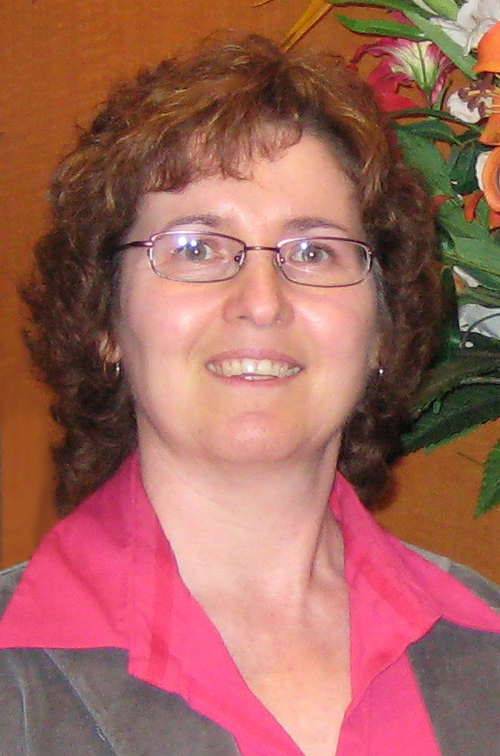Author: Bruce Byfield
“I’ve always done the things that nobody else wanted to do,” Michelle Bisson says, explaining how she became the only woman on the core team for the Joomla! content management system. “I say, ‘Oh, that needs to be done? Okay, I’ll do what I can.'” This outlook is responsible not only for making her one of the founders of the Joomla! project, but also for giving her an unusual degree of insight into how non-developers can contribute to free and open source software projects (FOSS).

Bisson’s involvement with FOSS began a decade ago when she moved with her husband and fellow core team member Lévis Bisson to Quebec City from Calgary, Alberta. While Lévis retrained in computer science, Michelle studied French, but later she joined him in founding POPcliQ (known outside of Quebec as Jazzisoft International), a Web site consulting company that has done considerable work for municipal and provincial governments in Quebec. Most of her computing knowledge, she says, comes from “working on the job, or having to learn for a project. I’m not a programmer, but I do know quite a bit of stuff.”
Searching for a content management system for clients, Bisson became involved with the Mambo project in July 2003. At the time, she remembers, the functionality required by her clients limited her choice of content management systems to Mambo or Typo3, and “I knew that our clients could use Mambo. It was user-friendly. They couldn’t learn how to use Typo3.”

On the strength of her work coordinating the documentation working group in Mambo, Bisson was asked to join the core team in early 2004. In 2005, this position put her squarely in the middle of the infamous dispute between the development team and Miro International Pty. Ltd., which owned the Mambo copyright. Feeling that Miro’s efforts to regain control not only ignored decisions made by the core team but also ran contrary to FOSS ideals, some 200 Mambo members defected to create the Joomla! project, with assistance from the Software Freedom Law Center.
Bisson remembers the split as tumultuous, but believes that, in the end, “It helped, because we really had to work together” in order to survive.
At the same time, as Joomla! legally separated from Mambo, it instantly faced the challenge of rapid growth — a problem that continues to confront the project today.
Growth, says Bisson, is “always a challenge both from without and within. From without, we get more and more demands, while the pressure from within is to expect more than people have time to give. We’re at a stage now where we’re bringing more people into an established structure, and maybe some of the positions on the core team need to change, so that instead of one coordinator for a working group, we bring in someone else, because a lot of people spend as much time on Joomla! as on their working jobs.”
Currently, Bisson leads the Joomla! Fundraising Team — another job, she says, that nobody else wanted to do. The role can be controversial, because many people in the project believe that fundraising is both unnecessary and contrary to FOSS ideals, but it is also one that is becoming increasingly necessary. Last year, Brad Baker, another core team member, revealed at the recent Vancouver Joomla!Day that the project raised less than $14,000 total last year, and that amount is clearly inadequate if the project is going to give financial assistance to all the growing number of Joomla!Days and other local events that are happening; a dozen Joomla!Days, and the budget would be used up.
“I think we’re over these hangups,” Bisson says. “I think there’s been an understanding that, if we want to get to the next level, then we’re going to need funds to help.”
Involving non-developers
Besides fundraising, Bisson is also concerned with making non-developers comfortable within the Joomla! experience, no doubt because of her own lack of technical background.
The project’s forum moderators enforce a code of conduct that insists on mutual politeness and self-respect, making contact with project members less formidable than it would otherwise be for newcomers. Partly for this reason, Bisson suggests that one good way of becoming involved is to start answering questions on the project mail forums.
“There are so many topics on the forums that you can probably find something that you know something about to answer. That’s an easy way to get involved without any commitment. You just sit there and answer questions,” Bisson says. “Of course, if you answer a lot of questions, someone may nab you. That’s probably a key way that people get involved.”
Recently, too, Joomla! has been investigating ways for people to contribute by formally joining a workgroup. One way that seems successful is the so-called cookie jar approach being used by the documentation workgroup, in which the topics to be covered are listed on a Web site, and people choose which ones they will work on.
Still another way to contribute is by writing or commenting on what Joomla! refers to as “white papers” — not a scientific essay, but a proposal for new features that is publicly discussed before being accepted or rejected.
Bisson also urges non-developers to become involved with Joomla’s Pizza, Bugs, and Fun (PBF) events, in which community members meet locally for bug-squashing and testing while remaining in contact internationally via IRC and email. Combining a practical purpose with social networking, PBFs are described by Bisson as a way that “non-techies can get involved in a really fun way.”
Bisson suggests that these mechanisms have helped Joomla! create an unusually welcoming atmosphere for non-developers. Asked whether the project had good relations between technical and non-technical volunteers, she replies, “I would say we do. It’s quite a bit different from more developer-related projects like, say, Drupal.” She notes, though, that she remains the only woman on the core team, and suspects that women are still underrepresented in other parts of the project as well.
FOSS and work
At times, Bisson finds that working on Joomla! interferes with her consulting work — at times “too much,” she says. For instance, in the week before we held this interview, Bisson lost four days between attending the Core Team Summit in Germany and preparing a presentation for Vancouver Joomla!Day. At other times, the demands are less, but Bisson says that 20 hours of FOSS work per week are not unusual. She says, “I’m trying to balance things by bringing more people on board [Joomla!], because you have to earn a living, too.”
Juggling the demands of work and FOSS involvement is all the more challenging because one rarely benefits the other. Although Bisson uses Joomla! in her consulting work, her membership on the core team does little to impress potential clients. “My clients don’t really understand,” she says. “[My involvement] doesn’t really help, except in a few odd international cases outside the province of Quebec. I wouldn’t say it’s a defining reason why people do business with you. Because a lot of other developers say that they’re Joomla! developers, but they don’t spend one penny or one second on the project — but they’re out there hustling and getting contracts.”
Still, Bisson has no regrets about her involvement with Joomla! “I have thought of moving on,” she says, “but I’m not ready. I have things that I still want to accomplish, and I still have more to contribute. I’ve been involved in the project so long that it’s become part of my life.”
In the end, the appeal of being so heavily involved in Joomla!, Bisson says, is “contributing and being part of something bigger than I could ever do myself, particularly on an international scale. I believed way back in Mambo that we had a cause, and you don’t just throw a cause away. In many ways, I can see we’re just at the beginning point. We’ve come to a point where we know we have a big deal, and we know we’re heading in the right direction.”
Our Portraits series seeks to profile individuals who are doing interesting things with free and open source software. If you know of someone you’d like to read about, please let us know.
Category:
- Community




